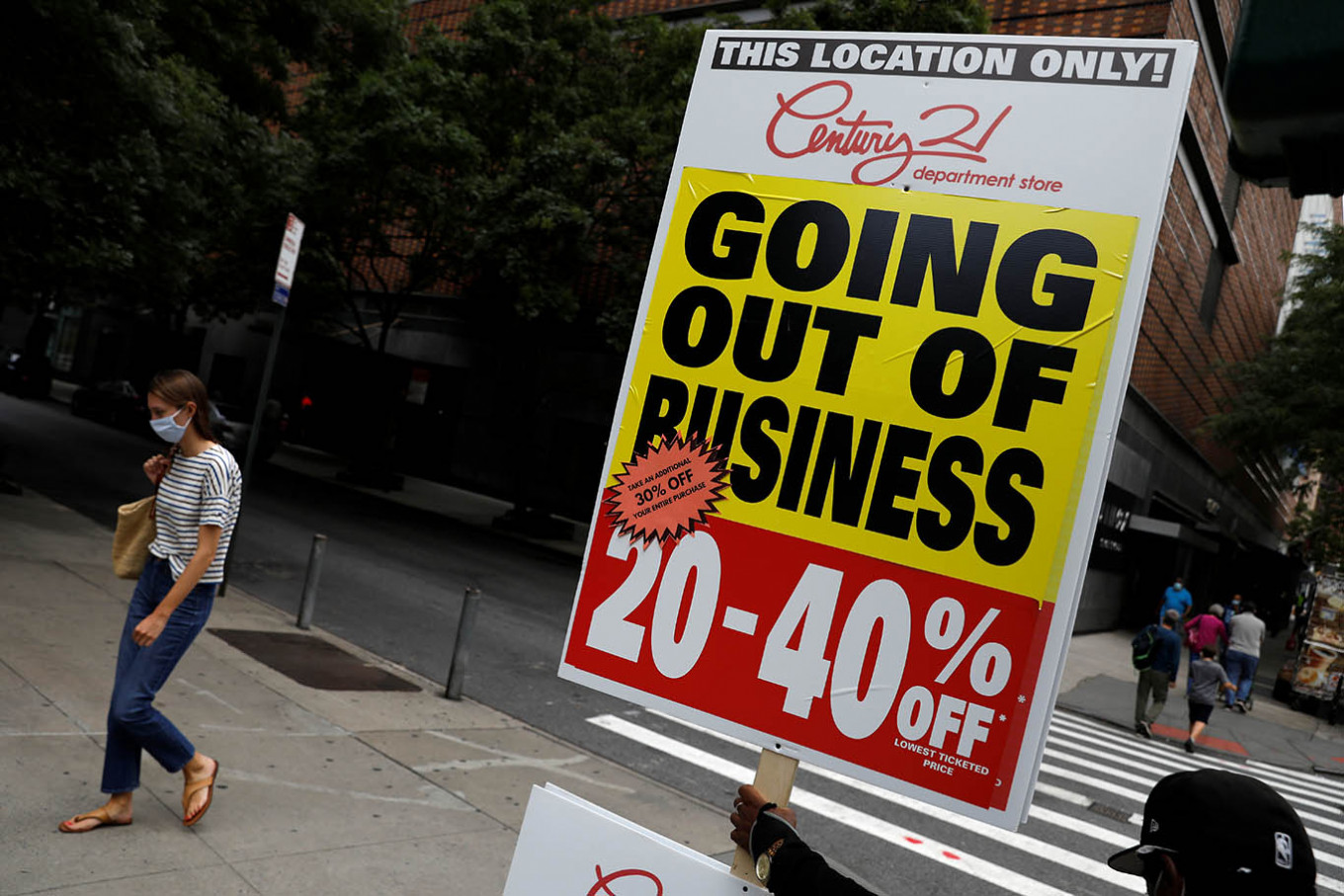Questioning the idea of a bankruptcy moratorium
The PKPU scheme is in place to help borrowers restructure their debt.
Change Size

T
he Indonesian Employers Association (Apindo) has suggested that the government enact a moratorium on the filing of bankruptcy and the suspension of debt payment (PKPU) scheme for three years in view of the economic recession caused by the pandemic. The idea has set off debates among businesspeople and other stakeholders.
Coordinating Maritime Affairs and Investment Minister Luhut Binsar Pandjaitan said the government was discussing the issue and considering issuing a government regulation in lieu of law to carry out Apindo’s suggestion. On the contrary, several legal practitioners opposed the idea of a bankruptcy and PKPU moratorium, insisting that the bankruptcy and PKPU systems were made for both borrowers and creditors. Therefore, they should not benefit one party at the expense of the other.
In fact, a bankruptcy and PKPU moratorium may become a way out for bad-faith borrowers.
According to the commercial court case tracking system (SIPP) of the Central Jakarta District Court, bankruptcy and PKPU petitions have increased significantly over the last couple of years. So far this year, 363 bankruptcy and PKPU petitions have been filed, compared to the 345 filed during all of 2019. There is indeed an upward trend of bankruptcy and PKPU cases.
Before we analyze whether a bankruptcy and PKPU moratorium is necessary, we need to take a look at four things: first, whether the large number of bankruptcy and PKPU cases is a cause or rather a consequence; second, whether the bankruptcy and PKPU mechanism is favorable to the borrower; third, what the impact of a bankruptcy and PKPU moratorium would be; and fourth, what the alternatives are for a viable solution.
The stringent social mobility restrictions imposed due to the pandemic have forced many businesses to stop operations or production, causing their incomes to fall while banks and vendors keep demanding payments and while taxes, salaries and rent become overdue. In many cases, the condition has prompted vendors or banks to file bankruptcy or PKPU petitions.
Hence, it is most likely that the increase in bankruptcy and PKPU petitions was the consequence of the economic recession. There would have been no bankruptcy or PKPU petitions if there were no unpaid debt. Under such a circumstance, the case would most likely end up with a settlement or the court would reject the petition because the debtor is solvent and able to settle out of court.
The country’s Bankruptcy Law does not require an insolvency test, as the petitioner is simply required to prove there are two creditors who have filed the petition and that one of the debts is due and payable. These simple requirements are considered one of the triggers of the increasing bankruptcy and PKPU petitions.
We should remember that the Bankruptcy Law is the legislative legacy of the 1998 economic crisis and recession. This law, in fact, has benefited borrowers as it helps them cope with financial distress. Hence, the PKPU scheme is in place to help borrowers restructure their debts. The aspects that distinguish PKPU from conventional debt restructuring are that the process is under court supervision and that it involves all creditors.
However, many entrepreneurs are unfamiliar with the PKPU scheme and are resistant to use or even face PKPU petitions. The key factors might be the relatively high legal cost, publicity in mass media and unwillingness to deal with court proceedings.
In fact, the PKPU scheme aims to provide legal certainty to both borrowers and creditors. If the borrower properly prepares the restructuring plan and manages the creditors, the PKPU scheme provides an exit from financial distress.
If the government decides to enact a moratorium on bankruptcy and PKPU petitions, there will be no new bankruptcy or PKPU cases during the moratorium, which will eventually force creditors to file lawsuits. Consequently, there will be a glut of litigation filed with the courts. Likewise, the suffering entrepreneurs will have to bear more litigation costs and deal with court proceedings.
Are there sufficient human resources in district courts to handle such an increase in litigation? Having that said, is a moratorium on bankruptcy and the PKPU scheme really necessary?
As reference, on April 6, 2020, the Russian government introduced a six-month bankruptcy moratorium, which prevented creditors from initiating bankruptcy proceedings against certain types of borrowers. This moratorium was eventually extended until January 2021. The bankruptcy moratorium in Russia only applied for certain strategic enterprises – not for all enterprises. This should be a consideration for the government before initiating a bankruptcy and PKPU moratorium.
Rather than a bankruptcy and PKPU moratorium, there is more important challenge – for the government to overcome this pandemic. One of the priorities should be amending the old-fashioned Bankruptcy Law to be in line with the current situation, for example, by dismissing creditors’ rights to file PKPU and limit the minimum debt for bankruptcy and PKPU petitions.
In addition, out-of-court debt restructuring mechanisms should be considered as alternative solutions since they have beneficial effects for both of creditors and debtors if the court-supervised restructuring is considered unfavorable.
As of now, there are no regulations on out-of-court debt restructuring, which means there is no legal certainty.
***
The writer is a bankruptcy and debt restructuring lawyer for ADP Counsellors at Law. The views expressed are personal.









